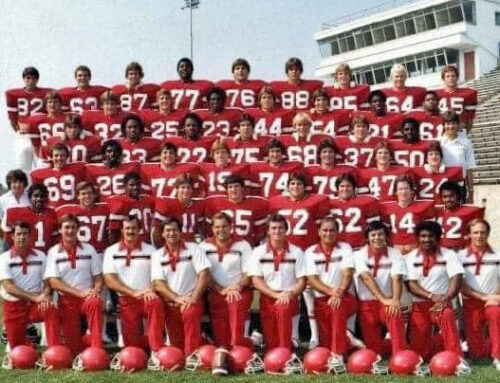I spent 10 years employed in commercial real estate, mostly working on properties someone else in the company bought or developed with the expectation of major profits. But often, the projects went the other way, taking lots more time than anticipated to develop and losing lots of money. And out of all of this, I learned this lesson: The guy who develops the golf course is rarely the guy who makes any money from it.
That didn’t make a lot of sense to me at the time, but over the years — and after watching and/or managing literally hundreds of failed real estate projects — I started to understand. Buying the land for a golf course is hugely expensive, and building out the project costs even more. And then you have to hire people to run it, buy equipment to maintain it, obtain water and power to operate it, and spend lots of money marketing the place so people will show up and use it. And only then, years after the initial idea, do you find out if you’ll get your money back, much less make any. And typically, the original developer’s projections were wildly optimistic. In my experience, the most common result was a bankruptcy or foreclosure on the developer, or a fire sale by the developer, pushed by the lender, just to get out of the deal. And not surprisingly, the next guy in — the guy who bought the project for pennies on the dollar — is the guy who makes the big bucks.
The golf-course developer — that’s the position Prescott Realty finds itself in with the Lake Highlands Town Center right now. That point was driven home last week when another ambitious project — the Park Lane development at Central and Park Lane across from North Park Center — was bought by a New York company. There was the usual PR discussion from the original owners, talking about how they’ll still be around and how everything is more or less on schedule, but the truth of the matter is that the guys in New York bought Park Lane cheap and hope to capitalize on the project by holding it for years and developing it slowly, because that’s all the market is going to allow them to do.
The Town Center is in the same position — it’s a great project in a great location with all kinds of potential. But so is the Park Lane deal. And so is the Timbercreek development at Skillman and Northwest Highway, with Sam’s and Wal-Mart already starting to come out of the ground and JCPenney probably not far behind. And so is the old Chevrolet land across the street, just sitting there waiting its turn.
The Town Center infrastructure has been steadily going in these past months, and what’s there looks good — thank you, Prescott, for that. The DART station is slated to open later this year. Everything will soon be in place, ready for the first project to break ground.
And that’s where things become tricky. Prescott is likely to face two options here, and neither is particularly satisfying if you’re a big-time developer.
Option 1: Stick to the plan that Prescott has sold to us, and just wait out the tough economic times until the types of projects Prescott planned for make their way to the Town Center. That means waiting as better-located projects (like Park Lane and Timbercreek and perhaps the stuck-in-the-mud development at Walnut Hill and Central) all begin to develop more quickly because they have better locations. Given that scenario, we are probably looking at a five- to 10-year horizon before anything substantive pops up at Town Center. And if you’re someone who believes in the long haul, that wait is probably the best thing that can happen to our neighborhood, because the current Prescott plan is a good one.
Option 2: Prescott doesn’t want to or can’t afford to wait five to 10 years to begin getting its money back, so it begins casting about for something, anything, to kick-start the project. That means, usually, giving a sweetheart deal to a big-name company willing to relocate to Town Center; maybe the incentive is free or almost-free land, or maybe it’s a low- or no-cost building in exchange for a commitment to Town Center so that Prescott can then turn around and trumpet something to the community and to other real estate professionals in an attempt to build interest in Town Center. The downside: It’s virtually certain that any company willing to come to the project under those conditions would be disruptive in terms of planning. For example, suppose a huge big-name grocer was induced to build at Town Center; that type of floorplan isn’t necessarily in the current zoning and/or development plan, potentially resulting in the need to re-zone the property or eliminate some of the other planned retail or office space in order to accommodate the jump-start (the apartment zoning is too valuable and won’t be going anywhere). And that would mean Prescott would potentially have to face the music at a public hearing or two and convince neighbors, and the rest of us, that throwing away some of the original planning is really the best that can be hoped for at Town Center today.
Neither option is necessarily better or worse, but both require that someone (Prescott, neighbors or both) suffer some kind of pain for what will be advertised as the “greater good”.
What will happen? Who knows. Prescott isn’t talking much right now and with good reason: They don’t have a whole lot to say. So far, they’re doing a great job of getting things ready for development at Town Center. Here’s hoping they don’t want up playing their drive into the water and settling for a triple-bogey in the development sense.





